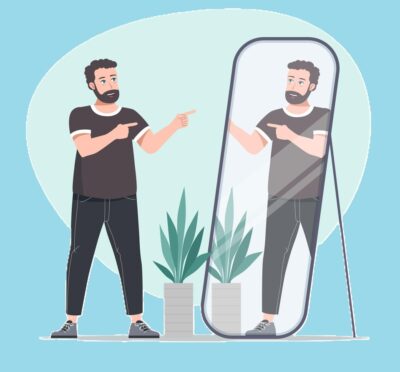Can Cold Flu Relief Empower Your Health?
As winter approaches, many people struggle with respiratory infections—commonly known as colds and influenza. How can you manage these illnesses effectively? In this article, we provide a detailed. We will explain the symptoms, causes, prevention strategies, and treatment options for both colds, We aim to empower you with actionable advice and relatable examples. Are you ready to discover the steps to achieve true Cold Flu-Relief?
Table of contents
- Can Cold Flu Relief Empower Your Health?
- 1. What Are the Main Symptoms That Signal the Need for Cold Flu-Relief?
- 2. How Do Viruses Cause Colds and Flu, and What Does That Mean for Cold Flu-Relief?
- 3. What Prevention Methods Can Deliver Effective Cold Flu-Relief?
- 4. How Can You Actively Manage Your Symptoms for Optimal Cold Flu-Relief?
- 5. What Lifestyle Changes Can Enhance Your Overall Cold Flu-Relief?
- 6. When Should You Seek Professional Help for Enhanced Cold Flu-Relief?
- 7. In Conclusion, Can Cold Flu-Relief Help You Embrace Health This Season?
1. What Are the Main Symptoms That Signal the Need for Cold Flu-Relief?
Generally, both colds and influenza affect your respiratory system, yet their symptoms differ in intensity and onset.
Cold Symptoms typically include:
- Gradual onset of a runny or stuffy nose
- Sore throat and mild cough
- Sneezing and slight fatigue
- Rarely a high fever in adults, though children might experience one
Flu Symptoms are usually more intense and come on quickly, including:
- A sudden high fever (often above 100°F)
- Severe body aches and chills
- Intense fatigue and weakness
- Dry cough and sore throat
Therefore, if you experience abrupt symptoms such as a high fever combined with muscle pain, it may indicate the flu rather than a common cold.
2. How Do Viruses Cause Colds and Flu, and What Does That Mean for Cold Flu-Relief?
Both colds and influenza are viral infections, but different viruses cause them.
- Rhinoviruses account for over 200 virus strains that lead to the common cold.
- Influenza viruses (primarily types A and B) cause the flu and can lead to serious complications in vulnerable individuals.
These viruses spread through respiratory droplets when someone coughs, sneezes, or even talks. Moreover, touching contaminated surfaces and then your face can lead to infection.
Key Points for Cold Flu Relief:
- Practice good hygiene: Regular handwashing with soap and water for at least 20 seconds is essential.
- Avoid close contact: Stay away from individuals who are sick.
- Use disinfectants: Clean surfaces like doorknobs and countertops frequently.
By taking these measures, you create an environment that supports your Cold Flu Relief plan and reduces your risk of infection.

3. What Prevention Methods Can Deliver Effective Cold Flu-Relief?
Prevention is the first step toward Cold Flu Relief. In addition to good hygiene, several strategies can help keep infections at bay.
Effective Preventative Measures:
- Vaccination:
- Get an annual flu shot, which significantly lowers your risk of influenza.
- Although there is no vaccine for the common cold, the flu vaccine protects against the most severe strains of influenza.
- Hand Hygiene and Respiratory Etiquette:
- Wash your hands frequently with soap or use a hand sanitizer with at least 60% alcohol.
- Cover your mouth and nose with a tissue or the inside of your elbow when coughing or sneezing.
- Healthy Lifestyle Choices:
- Maintain a balanced diet rich in vitamins C and D and zinc.
- Get adequate sleep (aim for 7–9 hours each night) and manage your stress levels.
- Environmental Controls:
- Use disinfectant wipes on high-touch surfaces regularly.
- Keep your living areas well-ventilated by opening windows when possible.
Furthermore, avoid crowded indoor spaces during peak infection periods if you are at high risk. These practices are proven to contribute to Cold Flu-Relief by minimizing virus spread.
4. How Can You Actively Manage Your Symptoms for Optimal Cold Flu-Relief?
When symptoms strike, it is essential to treat them promptly to achieve Cold Flu-Relief. The goal is to support your body’s immune system while alleviating discomfort.
Home Remedies and Treatment Strategies:
- Rest and Hydration:
- Ensure you rest and drink plenty of fluids (water, herbal teas, broths) to stay hydrated.
- Over-the-Counter Medications:
- Use pain relievers such as ibuprofen or acetaminophen to reduce fever and muscle aches.
- Decongestants and throat lozenges can help ease nasal congestion and sore throat.
- Natural Remedies:
- Inhale steam from a hot shower or a bowl of hot water to relieve congestion.
- Gargle with warm saltwater several times a day for throat pain.
- Antiviral Medications (for Flu):
- If you experience flu symptoms, consult your healthcare provider about antiviral drugs like oseltamivir (Tamiflu), which work best if taken within 48 hours of symptom onset.
It is important to note that antibiotics do not treat viral infections such as colds or the flu, so they should be avoided unless a secondary bacterial infection is confirmed.
By combining these strategies, you can achieve comprehensive Cold Flu-Relief that minimizes the impact of these illnesses on your daily life.
5. What Lifestyle Changes Can Enhance Your Overall Cold Flu-Relief?
Achieving lasting Cold Flu Relief is not only about treating symptoms—it also involves adopting healthy lifestyle habits that boost your immune system.
Lifestyle Recommendations:
- Balanced Diet:
- Incorporate fresh fruits, vegetables, and whole grains that provide essential nutrients.
- Regular Exercise:
- Engage in moderate physical activity to improve circulation and immune function.
- Stress Management:
- Practice mindfulness techniques such as meditation or yoga to reduce stress.
- Sleep Quality:
- Prioritize a consistent sleep schedule to ensure your body recovers fully each night.
- Avoid Smoking:
- Refrain from smoking and limit alcohol intake, as both can weaken your immune system.
These lifestyle modifications not only support your natural defense against respiratory infections but also serve as a foundation for effective Cold Flu Relief.
6. When Should You Seek Professional Help for Enhanced Cold Flu-Relief?
While most cases of colds and flu resolve on their own, certain warning signs indicate that you need professional medical attention for your Cold Flu Relief.
Seek Medical Advice If You Experience:
- A high fever that persists for more than three days
- Severe breathing difficulties or chest pain
- Confusion or dizziness
- Symptoms that worsen after an initial improvement
- Prolonged cough lasting more than two to three weeks
- In children, signs of dehydration or significant irritability
Promptly consulting a healthcare provider in these scenarios can prevent complications and provide you with targeted treatments, ensuring you receive the optimal Cold Flu Relief you need.
7. In Conclusion, Can Cold Flu-Relief Help You Embrace Health This Season?
To sum up, achieving Cold Flu Relief involves understanding the distinct symptoms of colds and the flu, knowing the causes and transmission methods, and applying a range of preventative measures and treatment strategies. By focusing on active self-care—such as maintaining a healthy lifestyle, practicing good hygiene, and using home remedies—you empower yourself to fight these viral infections more effectively.
Source Articles :
- 9 Common Cold Symptoms and How to Manage Them
URL: https://www.verywellhealth.com/common-cold-symptoms-11686606 - Common Cold (Rhinovirus): Symptoms, Cold vs. Flu, Treatment – Cleveland Clinic
URL: https://my.clevelandclinic.org/health/diseases/12342-common-cold - Influenza (flu) – Symptoms and causes – Mayo Clinic
URL: https://www.mayoclinic.org/diseases-conditions/flu/symptoms-causes/syc-20351719 - Cold Versus Flu – CDC
URL: https://www.cdc.gov/flu/about/coldflu.html - 10 Ways to Prevent the Cold and Flu – Piedmont Healthcare
URL: https://www.piedmont.org/living-real-change/10-ways-to-prevent-the-cold-and-flu - Healthy Habits to Prevent Flu – CDC
URL: https://www.cdc.gov/flu/prevention/actions-prevent-flu.html - Common Cold Symptoms, Treatment, and Prevention – Vicks
URL: https://vicks.com/en-us/symptom/cold - Preventing and Managing Common Cold (Fact Sheet PDF) – CDC
URL: https://www.cdc.gov/common-cold/media/pdfs/2024/04/CommonCold_fact_sheet_508.pdf - Flu Safety – American Red Cross
URL: https://www.redcross.org/get-help/how-to-prepare-for-emergencies/types-of-emergencies/flu-safety.html - Common Cold: Symptoms and Treatments – Mass General Brigham
URL: https://www.massgeneralbrigham.org/en/about/newsroom/articles/common-cold-treatment - Flu (Influenza): Everything You Need to Know – Healthline
URL: https://www.healthline.com/health/cold-flu/flu - Flu or Cold Symptoms? – WebMD
URL: https://www.webmd.com/cold-and-flu/flu-cold-symptoms - Knowing the Difference Between a Cold and the Flu – UCLA Health
URL: https://www.uclahealth.org/news/article/knowing-difference-between-cold-and-flu - Cold & Flu – Harvard Health
URL: https://www.health.harvard.edu/topics/cold-and-flu - Prevent the Flu: Tips for Parents & Child Care Providers – HealthyChildren.org
URL: https://www.healthychildren.org/English/health-issues/conditions/flu/Pages/preventing-the-flu-resources-for-parents-and-child-care-providers.aspx - Common Cold – Wikipedia
URL: https://en.wikipedia.org/wiki/Common_cold - Influenza Pandemic – Wikipedia
URL: https://en.wikipedia.org/wiki/Influenza_pandemic - Hospitals ‘extremely busy’ as 1,017 people admitted with flu virus – The Sun
URL: https://www.thesun.ie/health/14445936/hse-budy-hospital-pressure-flu-virus-symptoms/ - It’s Sick Season. Here’s How to Protect Yourself from Norovirus, COVID-19, Flu and RSV – AP News
URL: https://apnews.com/article/a673bf84d9503395783d849733e007eb
Studies, Statistics, or Experiments Mentioned in the Article:
- Cochrane Review – Vitamin C for Preventing and Treating the Common Cold
URL: https://www.cochranelibrary.com/cdsr/doi/10.1002/14651858.CD000980.pub4/full - Cochrane Review – Physical Interventions to Interrupt or Reduce the Spread of Respiratory Viruses
URL: https://www.cochranelibrary.com/cdsr/doi/10.1002/14651858.CD006207.pub3/full - NIH Office of Dietary Supplements – Zinc Fact Sheet for Health Professionals
URL: https://ods.od.nih.gov/factsheets/Zinc-HealthProfessional/
Image Resources:






